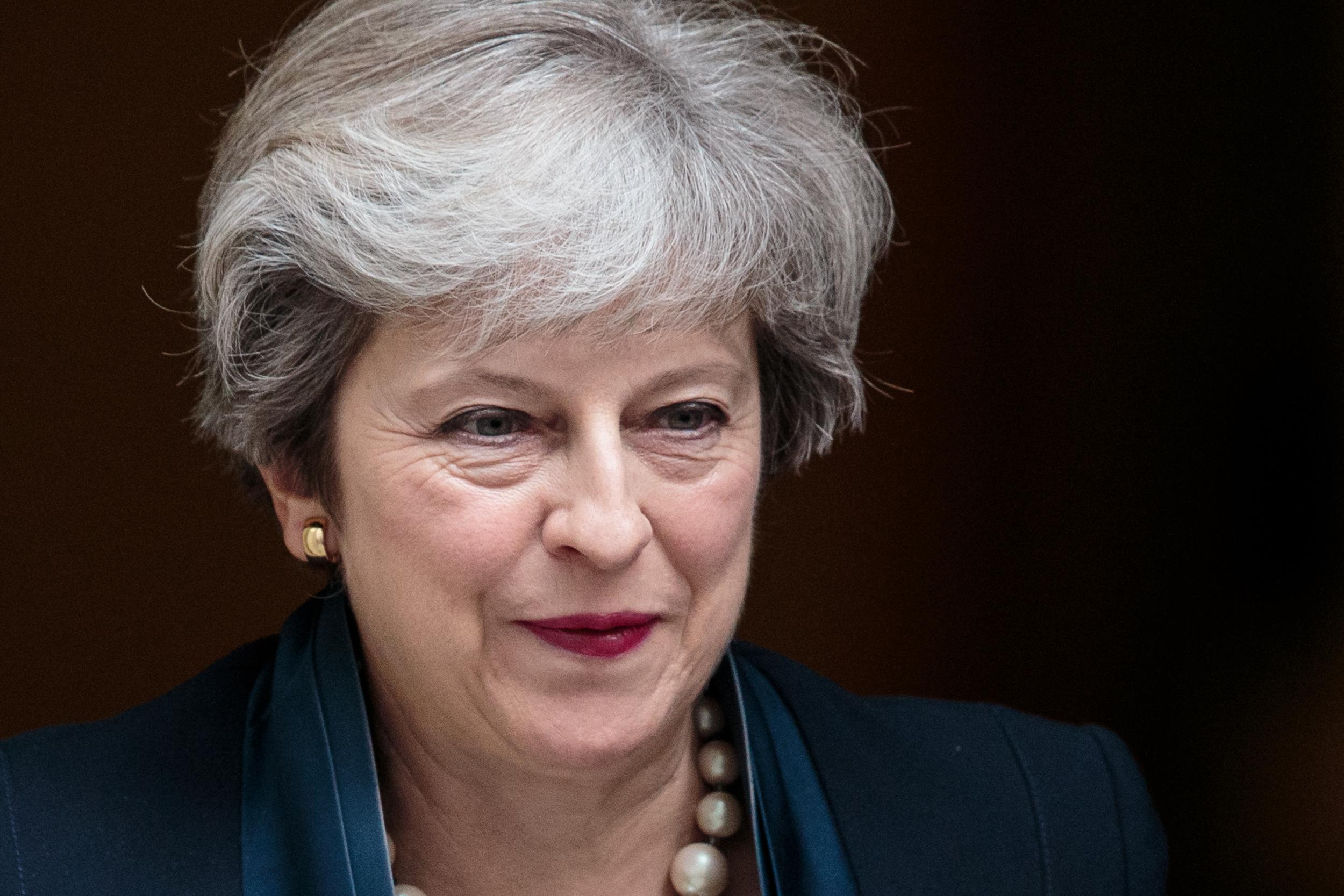Brexit: Theresa May doubles amount of time MPs can scrutinise withdrawal bill in key concession
Exclusive: MPs will have longer to investigate pitfalls they suspect are hidden in the Bill’s small print

Theresa May will make a key concession over her new Brexit legislation in an attempt to kill off any chance of an embarrassing early Commons defeat at the hands of Conservative backbenchers, The Independent can reveal.
The Prime Minister will double the amount of time MPs have to discuss the fine detail of her EU withdrawal bill, compared to what was allowed when legislation triggering Article 50 was pushed through.
It means MPs will have longer to investigate pitfalls they suspect are hidden in the small print, including controversial plans to hand ministers sweeping powers to ditch employment, environmental and other regulation currently protected in EU law.
The leadership hopes it will help stop Tory rebels voting with Labour when the Bill comes before Parliament for a crunch vote on Monday, with Jeremy Corbyn planning a countermove to convince them they should turn against Ms May.
The debate on her Bill starts on Thursday, following embarrassing reports that top UK businesses refused to back her Brexit strategy.
The Prime Minister’s drastically weakened position since the election leaves her facing defeat in Commons votes if just seven of her MPs rebel, meaning she must compromise to ensure pro-EU Tories back her Brexit legislation.
Earlier this year, Ms May’s refusal to allow more than three days to discuss the finer detail of her Article 50 legislation, as it went through the crucial ‘committee stage’, provoked a furious row.
Senior Tory sources told The Independent that in a bid to avoid a repeat, she will now allow between six and ten days for the same stage during debate on her new EU Bill.
A Conservative figure said: “To have five days at committee stage for a bill of this length, that would be generous.
“Six to ten days is likely to come out, and that really is a generous programme motion.
“We’re not predicting that the motions we set out will be a problem. It’s likely they will pass.”
The officially named EU (Withdrawal) Bill, formerly called the Repeal Bill, will see all EU law currently affecting the UK brought on to the British statute book on the day of Brexit, with ministers then granted so-called ‘Henry VIII powers’ to alter regulations – with a lesser degree of parliamentary scrutiny than usual.
The Government claims the powers (named because they allowed the Tudor monarch to govern by proclamation) are needed to tweak regulation so it can be seamlessly transferred into British law.
But Labour critics, joined by others on Ms May’s own benches, fear they will be used to scrap critical protections for workers and the environment or weaken regulations controlling the financial sector.
Conservatives whips have spent the past week speaking to backbenchers to ascertain how severe any dissent could be, but potential rebels have signalled that a revolt may have been averted.
At Prime Minister’s Questions, Ms May gave assurances to pro-EU backbencher Anna Soubry that the Bill would not be used by ministers to grab new stronger powers for the executive, and she offered to meet the former minister to further allay her fears.
Speaking ahead of the debate on Thursday in emollient language, Ms May said: “We’ve made time for proper parliamentary scrutiny of Brexit legislation, and I look forward to the contributions of MPs from across the House.
“But that contribution should fit with our shared aim: to help get the best Brexit for Britain.”
Echoing her approach, Brexit Secretary David Davis said: “I hope everyone in this House recognises this Bill’s essential nature – it is the foundation upon which we will legislate for years to come – and I look forward to working with the whole House to deliver the Bill.”
Another Conservative MP close to Tory rebels told The Independent they did not think colleagues would revolt in the vote, either on the timings of debate or on the substance of the Bill at its second reading on Monday.

A third Tory said: “The whips have been speaking to their flocks. I don’t think there will be any upset at this point.
“That doesn’t mean there won’t be Tories who vote for amendments to the Bill later on, and if there are going to be splits, it will be over the Henry VIII powers.”
Labour plans to table a ‘reasoned amendment’ – setting out reasons that the Bill should rejected – which will focus its opposition to the legislation on the powers, in a bid to attract Tories worried about the same issue.
A senior source told The Independent: “It’s not about Brexit. We backed Brexit, we voted for Article 50, so our position on that is clear.
“This Bill goes beyond that, and contains elements that are really quite disturbing.
“It’s not right that we would back something that would put powers into the hands of Tory ministers to slash away at laws that protect everyday people, just so they can help their friends in big business – regulations on holiday pay and maternity leave.
“We know this is a trap. We know that the Tories will say we are voting against Brexit, but we’ve just got to make really clear that we do support Brexit – but not one that puts great power into the hands of Theresa May’s ministers.”
Speaking after PMQs on Wednesday, Mr Corbyn’s official spokesman urged rebel Tories not to support the Bill.
He said: “It’s not about whether or not we are leaving the European Union; we are leaving. It’s not about seeking to frustrate that process.
“It’s a purely democratic issue about the accountability and sovereignty of Parliament, and I think any MP should take that issue seriously – it’s a basic democratic question.”
Join our commenting forum
Join thought-provoking conversations, follow other Independent readers and see their replies
Comments